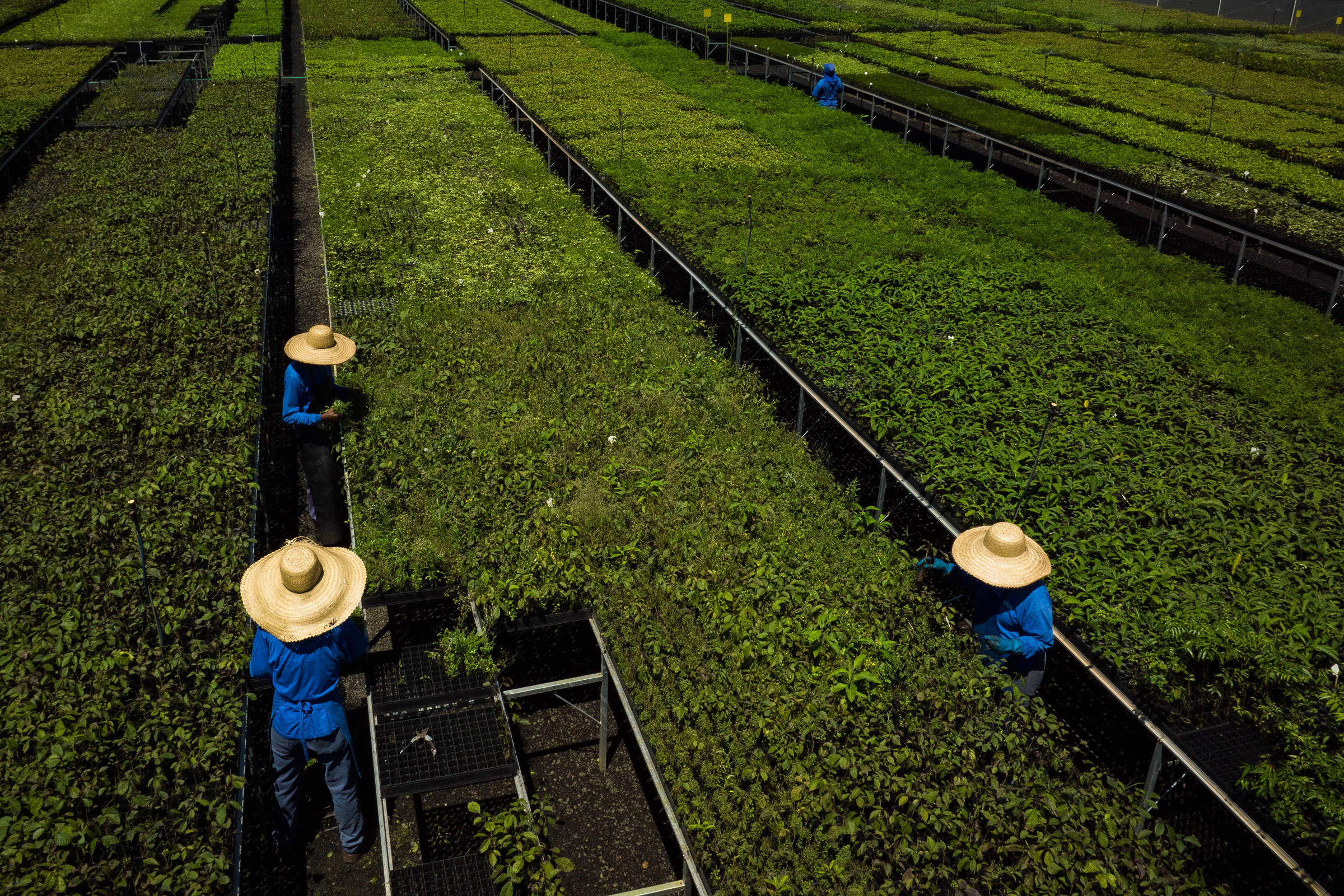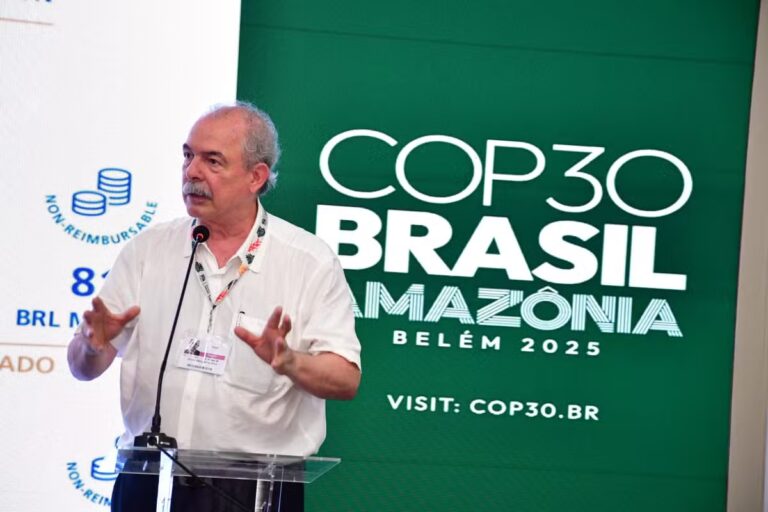
BNDES (National Bank for Economic and Social Development) this Wednesday (12th) announced five new credit projects from the Climate and Forest Fund aimed at the restoration and implementation of agroforestry systems during COP30 in Belém, State of Pará.
The total value of the contract is R$912 million, and taking into account equivalent products provided by the private sector, the total investment is expected to be R$3.1 billion.
The group includes companies associated with BTG, one of Latin America’s largest investment banks. to Patria Instruments, a consolidated manager in the development of corporate stocks. And just a few days ago, Re.green won the Earthshot Prize 2025 in the “Protection and Restoration of Nature” category, an award founded by Prince William that has become known as the “Oscars of Sustainability.”
“Forest restoration is a concrete economic challenge in Brazil,” said BNDES President Aloyzio Mercadante. “We combine competitive credit, science, innovation and partnerships with the private sector to create jobs and incomes and restore biodiversity.”
Re.green has signed a second agreement with a public bank and will receive R$250 million for the restoration of 19,000 hectares of native species distributed between the Amazon and the Atlantic Forest. The company has already received 187 million reais for 2024 and currently has a loan of 437 million reais from the Climate Fund. The project will employ 3,000 people and avoid emissions of 1.27 million tonnes of CO₂ equivalent per year.
BTG Pactual, through Camapuã Agropecuária, has been awarded R$200 million to restore and protect 49,400 hectares in the Cerrado in Mato Grosso do Sul. The project is expected to generate 36 million carbon credits and is in partnership with the Federal University of Viçosa and Conservation International.
Patria Instimentos also signed an agreement to receive R$200 million for the implementation of SAF (agroforestry systems) in degraded areas in the states of Bahia, Espírito Santo and São Paulo. The initiative will focus on low HDI regions such as Vale do Ribeira and integrate cocoa, coffee and avocado crops with native species from the Atlantic Forest.
Tree+, a company belonging to the Lorenz Group, former founder of Aracruz Cellulose, received R$152 million to restore 15,000 hectares of Atlantic Forest north and south of Rio de Janeiro. The project involves planting native species, restoring conservation areas and creating ecological corridors.
Ibema Group’s Frona Iraty Florestal has been approved for R$110 million for the restoration of the Iraty National Forest in Paraná, the first federal forest concession in the Atlantic Forest biome created by BNDES. The project, in which Suzano is also a shareholder, includes the gradual removal of invasive species, the planting of native species, training and ecotourism activities.
The event at COP30, where the funding was officially decided, was a prestigious one. Mariana Silva, Minister of Environment and Climate Change, and Brazilian researcher Carlos Noble participated.
Marina emphasized the importance of business partnerships. Because, according to her, it shows the importance of economics in the discussion. “The big debate at COP30 is between climate, ecology and economics,” he said.
According to Teresa Campello, Social and Environmental Director at BNDES, the new venture will strengthen the Climate Fund as a strategic instrument for the ecological transition. “We are showing that Brazil can create wealth and prosperity by rebuilding its forests,” he said.
Over the past two years, with support from BNDES, five donations totaling R$7 billion have been invested in Brazil’s forests. Mercadante had anticipated this announcement even during the summit ahead of COP30. This resource will enable us to plant 283 million trees and capture 54 million tonnes of CO2 from the atmosphere. “Brazil has all the conditions to lead a new forest economy and transform the arc of deforestation into an arc of recovery,” he said.



